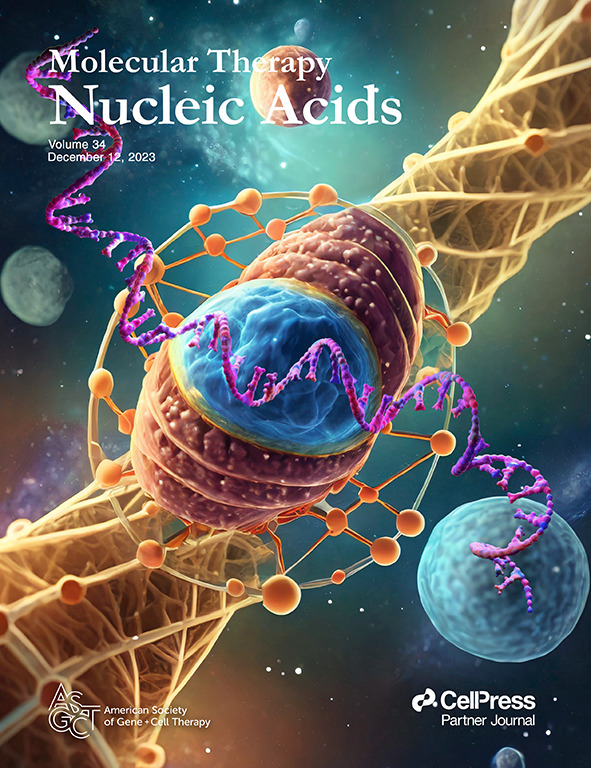基于代谢通路的子宫内膜癌亚型分析:基于多组学分析和机器学习算法的综合研究
IF 6.5
2区 医学
Q1 MEDICINE, RESEARCH & EXPERIMENTAL
引用次数: 0
摘要
子宫内膜癌(EC)是女性生殖系统中第二常见的恶性肿瘤,因其基因组异质性而受到越来越多的关注,但人们对其代谢特征的了解仍然不足。我们通过全面的多组学分析(来自癌症基因组图谱(TCGA)、癌症细胞系百科全书(CCLE)和GEO数据集的RNA-seq数据集;临床肿瘤蛋白质组学分析联盟(CPTAC)蛋白质组学;CCLE代谢组学)探讨了EC的代谢功能障碍,从而为精准治疗开发有用的分子靶点。通过无监督共识聚类将EC患者分为三个基于代谢通路的亚组(MPS)。这些MPS亚组具有不同的临床预后、转录组和基因组改变、免疫微环境状况以及独特的化疗敏感性模式。此外,MPS2亚组对免疫疗法的反应更好。最后,三种机器学习算法(LASSO、随机森林和逐步多元考克斯回归)被用于开发基于代谢分子的预后 "元基因 "特征。这样,一个基于十三个枢纽基因的分类器就被构建出来,用于预测患者的 MPS 亚型。这种基于代谢的分类系统有可能提高预后预测能力,并指导EC的免疫疗法和代谢靶向疗法的临床策略。本文章由计算机程序翻译,如有差异,请以英文原文为准。
Metabolic-Pathway-Based Subtyping in Endometrial Carcinoma: An Integrated Study Based on Multi-omics Analysis and Machine Learning Algorithms
Endometrial cancer (EC), the second most common malignancy in the female reproductive system, has garnered increasing attention for its genomic heterogeneity, but understanding of its metabolic characteristics is still poor. We explored metabolic dysfunctions in EC through comprehensive multi-omics analysis (RNA-seq datasets from The Cancer Genome Atlas (TCGA), Cancer Cell Line Encyclopedia (CCLE), and GEO datasets; the Clinical Proteomic Tumor Analysis Consortium (CPTAC) proteomics; CCLE metabolomics) to develop useful molecular targets for precision therapy. Unsupervised consensus clustering was performed to categorize EC patients into three metabolism-pathways-based subgroups (MPS). These MPS subgroups had distinct clinical prognoses, transcriptomic and genomic alterations, immune microenvironment landscape, and unique patterns of chemotherapy sensitivity. Moreover, the MPS2 subgroup has a better response to immunotherapy. Finally, three machine learning algorithms (LASSO, random forest, and stepwise multivariate Cox regression) were used for developing a prognostic “Metagene” signature based on metabolic molecules. Thus, a thirteen-hub-gene-based classifier was constructed to predict patients’ MPS subtype offering a more accessible and practical approach. This metabolism-based classification system can potentially enhance prognostic predictions and guide clinical strategies for immunotherapy and metabolism-targeted therapy in EC.
求助全文
通过发布文献求助,成功后即可免费获取论文全文。
去求助
来源期刊

Molecular Therapy. Nucleic Acids
MEDICINE, RESEARCH & EXPERIMENTAL-
CiteScore
15.40
自引率
1.10%
发文量
336
审稿时长
20 weeks
期刊介绍:
Molecular Therapy Nucleic Acids is an international, open-access journal that publishes high-quality research in nucleic-acid-based therapeutics to treat and correct genetic and acquired diseases. It is the official journal of the American Society of Gene & Cell Therapy and is built upon the success of Molecular Therapy. The journal focuses on gene- and oligonucleotide-based therapies and publishes peer-reviewed research, reviews, and commentaries. Its impact factor for 2022 is 8.8. The subject areas covered include the development of therapeutics based on nucleic acids and their derivatives, vector development for RNA-based therapeutics delivery, utilization of gene-modifying agents like Zn finger nucleases and triplex-forming oligonucleotides, pre-clinical target validation, safety and efficacy studies, and clinical trials.
 求助内容:
求助内容: 应助结果提醒方式:
应助结果提醒方式:


